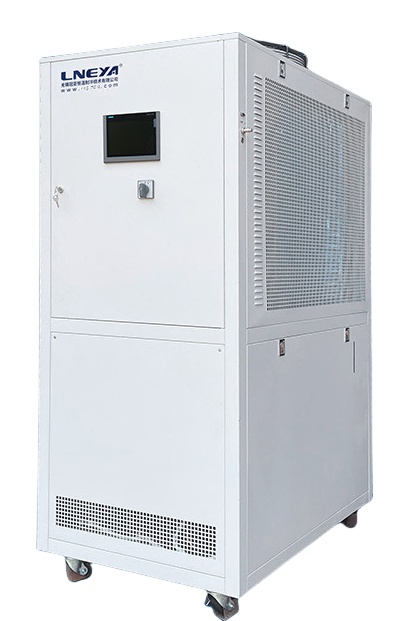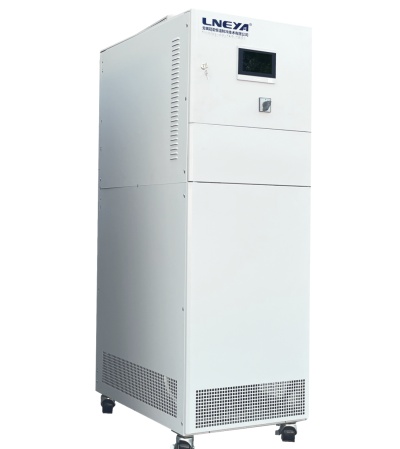ACHEMA 2024
672024 ACHEMA Biochemical Technology Exhibition in Frankfurt, Germany ACHEMA 2024Germany Ahma Biochemical Technology ExhibitionJune 10-14, 2024Ludwig-Erhard-Anlage 1, Frankfurt, GermanyBooth number: 6.1-C55 ,
View detailsSearch the whole station Pharmaceutical Chiller 产品分类菜单
Coolant Coolers Chillers: Vital for Distillation Processes
In industrial processes such as distillation, where heat-sensitive materials are separated based on differences in their boiling points, maintaining precise temperatures is crucial. Coolant coolers, or chillers, play a significant role in regulating these temperatures. Chillers can be air-cooled or water-cooled, with each type offering specific advantages for different applications.

Types of Chillers for Distillation
Air-Cooled Chillers: These chillers are ideal for applications where water scarcity is a concern or where installation space is limited. They dissipate heat through a process of forced air across the condenser coils, making them suitable for smaller-scale operations or areas with limited water availability.
Water-Cooled Chillers: More efficient than air-cooled counterparts, water-cooled chillers use water to absorb and dissipate heat. They are suitable for larger-scale distillation processes where high cooling capacities are required. These chillers often integrate with existing water systems, making them an efficient choice for continuous cooling processes.
Selection Criteria for Chillers in Distillation
When selecting a chiller for distillation, several factors must be considered:

Cooling Capacity: The chiller must be capable of providing the necessary cooling capacity to maintain the desired temperature setpoints during the distillation process.
Temperature Control: Precise temperature control is essential to ensure the efficiency and effectiveness of the distillation process. Chillers with advanced control systems can maintain tight temperature tolerances.
Energy Efficiency: Chillers with high COP (Coefficient of Performance) ratings are more energy-efficient, leading to lower operating costs and a smaller environmental footprint.
Reliability: Given the critical nature of distillation processes, chillers must offer reliable performance with minimal downtime. This often involves selecting chillers from reputable manufacturers with a proven track record.
Market Trends and Chiller Technology

The global chillers market is experiencing growth due to the increasing demand for energy-efficient cooling solutions in various industries, including distillation. Advancements in chiller technology, such as the use of microchannel evaporators and variable-speed drives, contribute to improved efficiency and performance. Additionally, the market is moving towards chillers that use environmentally friendly refrigerants, aligning with global sustainability goals.
Conclusion
Coolant coolers, or chillers, are indispensable for distillation processes, ensuring precise temperature control and efficient separation of substances. The selection of the appropriate chiller is crucial and depends on factors such as cooling capacity, temperature control, energy efficiency, and reliability. As the market for chillers continues to evolve, the focus on energy efficiency and technological innovation will remain a driving force in the development of new chiller technologies for distillation and other industrial processes.
2024 ACHEMA Biochemical Technology Exhibition in Frankfurt, Germany ACHEMA 2024Germany Ahma Biochemical Technology ExhibitionJune 10-14, 2024Ludwig-Erhard-Anlage 1, Frankfurt, GermanyBooth number: 6.1-C55 ,
View detailsThe chiller market in Canada is experiencing growth due to the increasing demand for energy-efficient cooling solutions and the rapid industrialization across the country. Key players in the market are focusing on innovation, offering a range of chiller systems that are sustainable and reliable. The market is expected to expand at a CAGR of 8.8% from 2024 to 2030, with a shift towards eco-friendly chillers offering lower Global Warming Potential (GWP) and high potential in solar and wind projects.
View detailsA 100-ton water chiller is a high-capacity cooling system utilized in various large-scale industrial applications to maintain optimal temperatures. This article provides an extensive analysis of 100-ton water chillers, including their types, efficiency calculations, maintenance guidelines, and troubleshooting tips. It covers both air-cooled and water-cooled chillers, highlighting their respective advantages and applications. The importance of regular maintenance for ensuring system efficiency and longevity is emphasized, along with how to calculate a chiller's efficiency using the Coefficient of Performance (COP). Troubleshooting common issues such as high-pressure alarms is also discussed, with practical solutions provided.
View detailsAn air-cooled chiller plant is a critical component of HVAC systems, particularly where water resources are scarce. It operates on the principle of vapor compression refrigeration, using air to dissipate heat from the condenser. This article discusses the working principles, types, applications, and efficiency considerations of air-cooled chiller plants. It also explores the market trends and the importance of energy optimization in these systems, providing a comprehensive overview for industry professionals.
View details